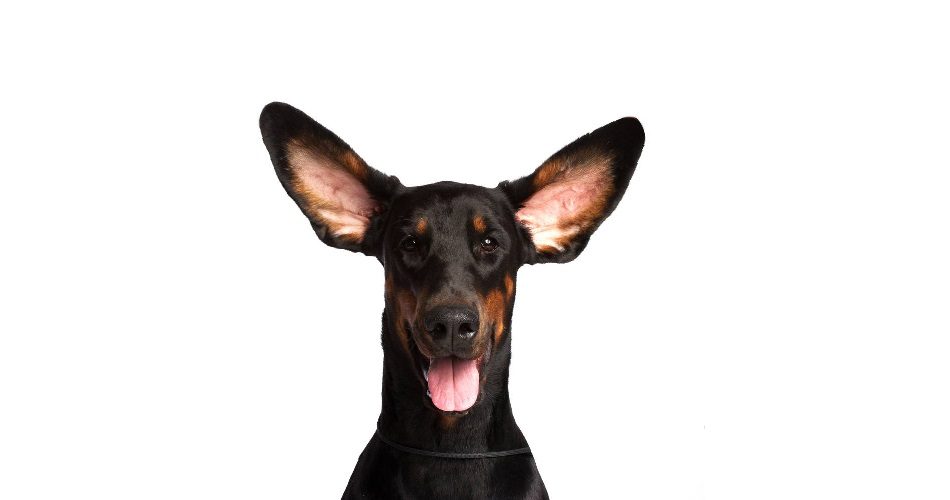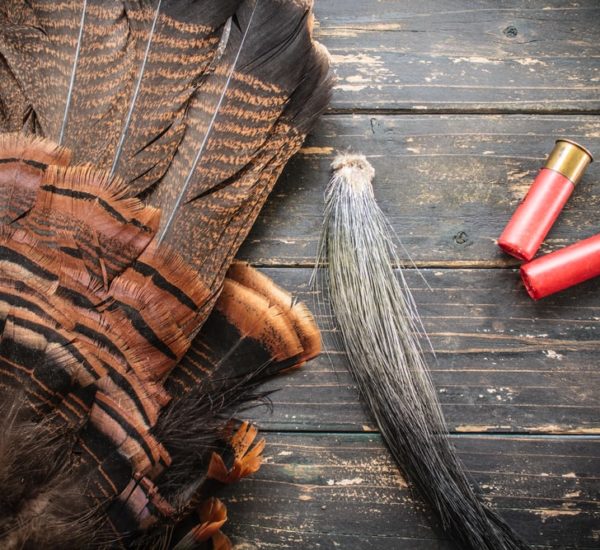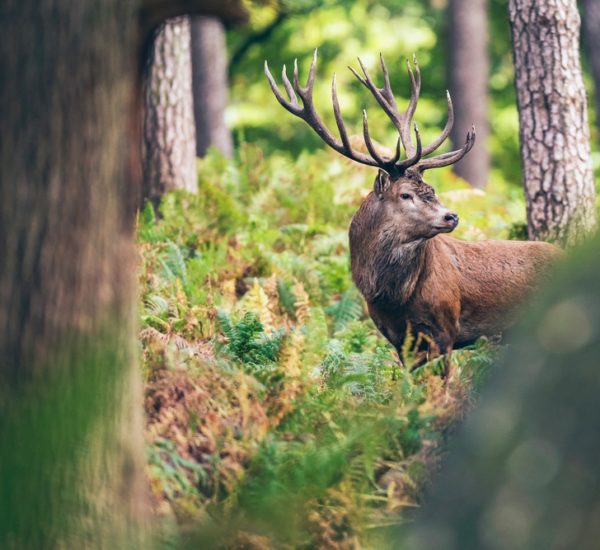Floppy ears can mean that a dog would have issues when having to use its hearing abilities.
Or would it?
When a hunting dog has floppy ears, it does not affect its hearing ability rather just a trait gotten while being bred. Here is a specific reason that answers the question of why do hunting dogs have floppy ears.
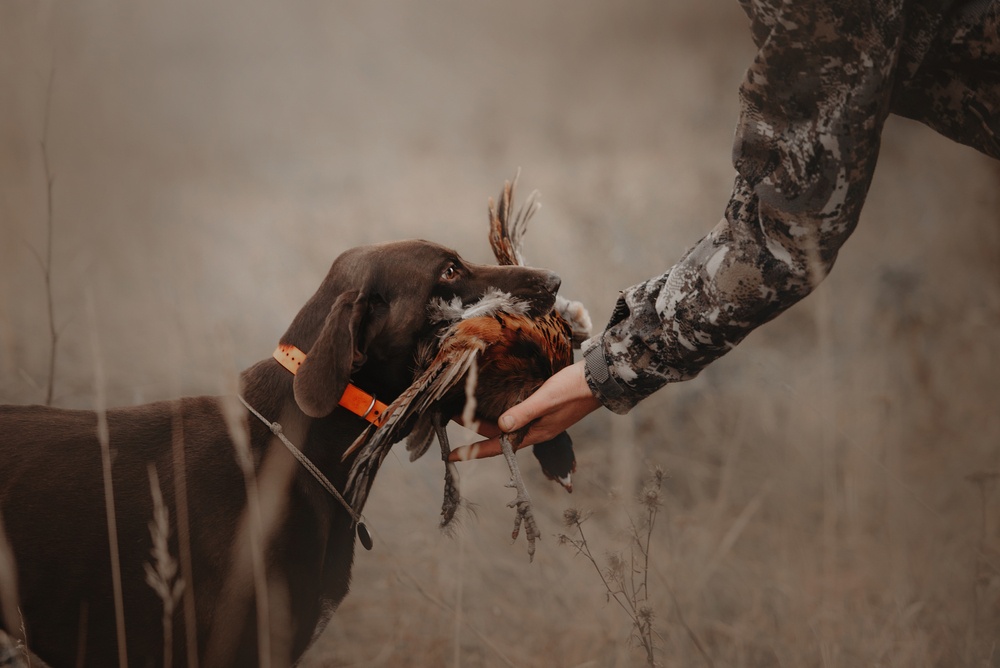
Why do Hunting Dogs Have Floppy Ears?
Floppy ears are indicators in hunting dogs or dogs in general. They are a sign of a genetic altercation that shows that a hunting dog can be more than a hunting companion. These kinds of dogs can be domesticated when not out for hunting.
Several hunting dogs belong to this category, and they are:
- Beagles.
- Black and Tan Coonhound.
- Bloodhound.
- English Cocker Spaniel.
- Setters.
- Afghan hound.
- Weimaraner
Once you breed these dogs for tameness, then they let their ear turn floppy. However, there are other reasons why the hunting dogs may have a floppy ear, and they are:
- Sometimes the ears may become floppy when they are too large for the dogs. It is easily found in dogs that have big heads.
- Another reason may be that it is a trait that is hereditary in the dog breed.
- Also, if there are too many spaces between the ears, it could turn out floppy.
- When training a dog for hunting purposes, even if the ears were initially erect, they could turn floppy when they rubbed roughly.
- Hunting dogs can have floppy ears if you consistently pet the ears backward while handling or trying to build loyalty.
- A reason for a hunting dog having floppy ears could be that you let it play along with other dogs that love chewing ears. So, if you have more than one hunting dog and some love chewing ears, they could all turn out floppy.
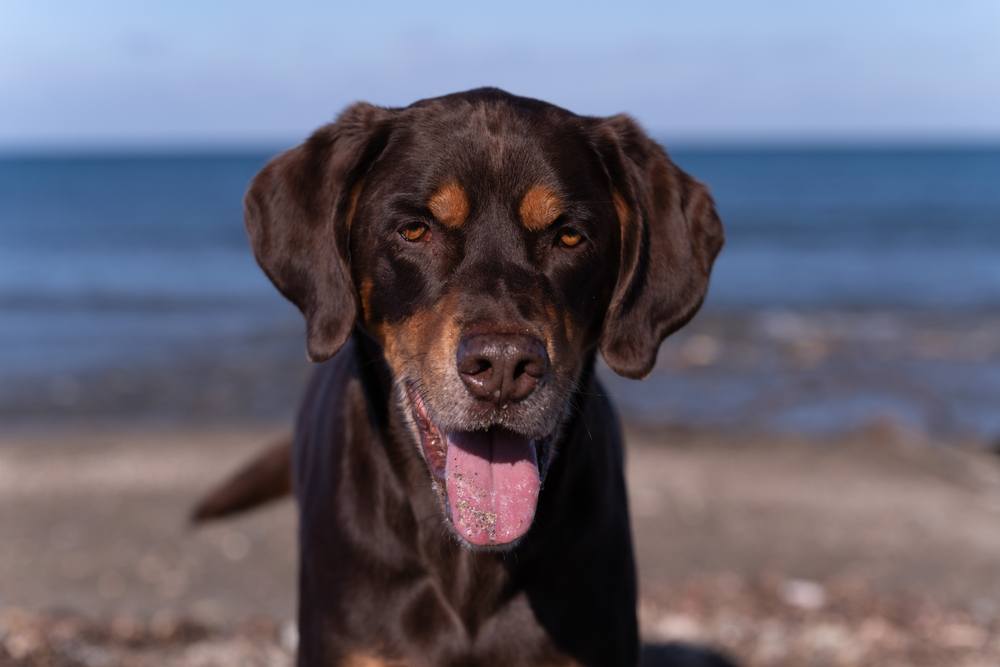
There may be other reasons why your hunting dog would turn out to have floppy ears that are not highlighted in this section, but it still exists. Generally, you would hardly find a wild dog or a wolf that comes with a floppy ear as they are all properly erect. It has been highlighted earlier that floppy ears are mostly connected to the dog’s domestication or breeding the dog for other tasks apart from hunting.
Scientists believe that these kinds of ears are accidentally developed when the stem cells start functioning abnormally due to unverified reasons. However, these reasons have been linked to humans training the dog to achieve certain traits in the long run.
Even though the floppy ears are traits that came out accidentally, they have continued to dominate as they have been actively pursued through breeding. Those that use their hunting dogs for domestic purposes now think it is an attractive trait and looks good on dogs.
Unlike certain other traits that come up due to the way it is bred, the floppy ears do hinder the dogs’ abilities in any way. The only difference is that the owners have to spend more time cleaning out the ears than on an erect one.
How to clean the floppy ears of your hunting dogs
Even though that floppy ears would not hurt your hunting dogs or make them uncomfortable, you would need to be careful as they are more susceptible to ear infections. The reason for such is that the floppy ears gather up moisture and reduce the amount of airflow to the ear. What this does is make the region a conducive environment for organisms to grow and thrive.
Seeing that the floppy ears would require more grooming precision than those that are erect, this section is to guide you on how to do that.
- Get a good cleaning formula: Cleaning formulas are essential as there are some dedicated to washing the dog without causing any problems. So, get to a pet store and purchase a recommended cleaning formula.
- Clear out the region: Before you start washing, remove any excess hair found at the ear canal entrance. With this, you would have more accessibility, and you would be able to see through.
- Introduce the cleaning formula: Here, you are to fold back the floppy ears and then squirt the cleaning formula into the flaps of your dog’s ear. Ensure the cleaner is adequately distributed in the region. You can do this by massaging the ear, and you would hear the sound of the liquid getting through the ear.
- Allow the cleaner to sit: Once you are confident that the cleaner has covered all the ear areas, then allow it to stay for a few minutes. Then allow the dog to shake out the ear’s contents, but note that it could be quite messy.
- Clean out the liquid: Get a ball of cotton or something close to clean out the ear’s entrance properly. The cotton would take out the debris that the liquid has dislodged. Remember not to force anything into the ear.
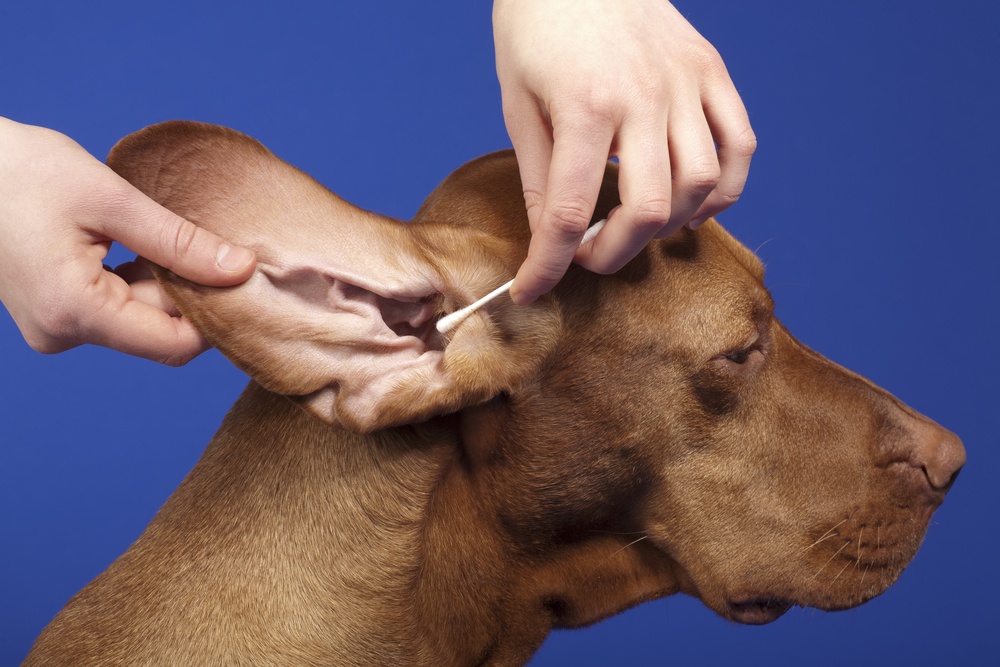
Why do basset hounds have long ears?
Basset hounds are distinctive breeds of the hounds, and there is something that stands out, which is their ear. They have very long and yet droopy ears that help improve how it happens to function. Just as is assumed of dongs with long ears, the basset hound finds it easy to hear things much easier, fainter and farther away.
Aside from hearing alone, the basset hounds are highly reliant on their ears for smelling. This may be hard to comprehend since the original function of the ear is to hear sounds. However, with the basset hound and other hounds like this, they use them in picking up trails that are left behind by scents.
When the basset hound is out hunting, you will notice that the ears are set lower on its head, unlike other dogs’ ears. For this reason, the ears are forced to hang a lot lower and even look much longer than it originally is. So, when the basset hound is out following a trail, the ears drop on follow-through along the ground.
It seems as though it is a dust-broom for scents with their dragging ears, which helps stir up any particle that is not ordinarily tangible. All of these still make up following a scent by the basset hound. Combined with the particles being swept up by the dog’s nose, it makes a great option for picking up scent and hunting in general.
With all of these qualities, the basset hound can serve as one of the most suitable dogs that could be taken on a hunt. Their ears make it ear to track down their prey, and they are tenacious enough to get to through their quarry; if you are wondering if this dog howls, well, just as other dogs in its category, this one howls to signal you to a position.
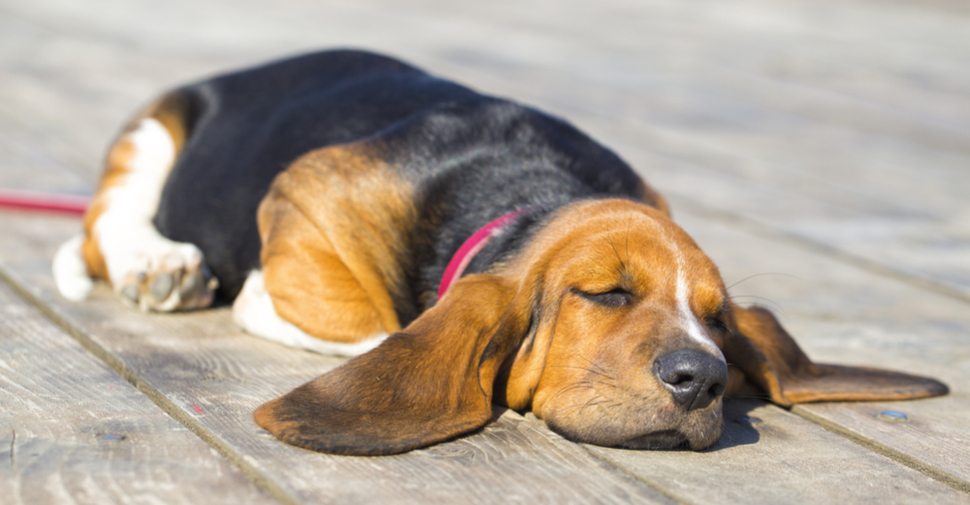
Frequently Asked Questions (FAQs)
Why do hound dogs have long ears?
Hound dogs come with floppy ears that let them have improved abilities than other hunting dogs. For example, the basset hound that has been highlighted in this post uses long ears to aid its sense of smell. They make use of their long ears to follow up trails, and then all you need to do is attach a dog bell to follow where it leads while out hunting.
If you wonder how they function on a hunt, they are quite effective for such a duty. With their improved sense of smell and athleticism, finding their prey comes easy enough comes easy. However, if you are worried about safety, then you may get a dog vest to keep it safe from a big game.
Can short ears get floppy as well?
Floppy ears are not exclusive to dogs with long ears alone, and they can be found in short ears as well. Just like the others, dogs with short floppy ears function without the ears causing any obstructions. The only thing that may be needed is frequent maintenance of the region to keep it free from organisms.
Can floppy ears get erect again?
There is no rule of thumb regarding how floppy ear functions, as some may rise again after stay down for a while. Yet, some never come up after it has gone floppy. In this kind of case, they are majorly floppy eared puppy because of the size or even a genetic altercation and sometimes as a hereditary trait.
Summary
Knowing why do hunting dogs have floppy ears is important to know what to expect from a dog dedicated to hunting purposes. Nevertheless, this post shows that floppy ear dog breeds are not less effective than others. Rather they are just traits acquired while they were being trained or due to the company they keep.


